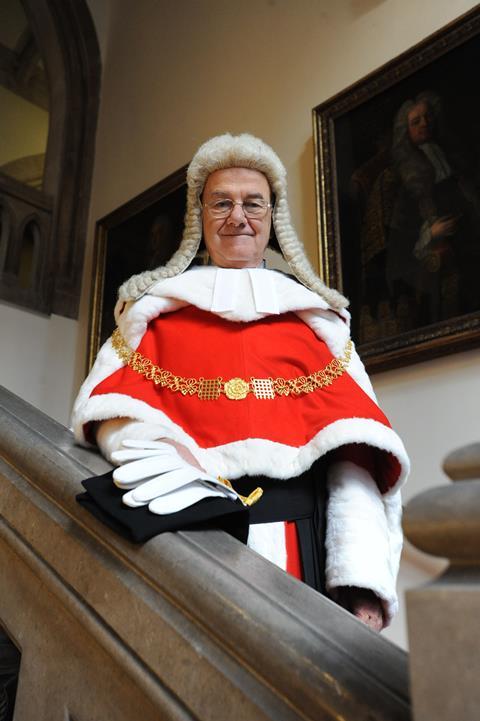Tributes have started to pour in from across the legal world for the former lord chief justice Lord Judge, who died on Tuesday aged 82.
Lord Judge served as head of the judiciary from 2008 to 2013 and continued to be an active and prominent cross-bench member of the House of Lords, last speaking in parliament in March.

Lady chief justice Baroness Carr of Walton-on-the-Hill said Lord Judge was ‘not only a remarkable judge and leader, he was also a true friend to so many of us’.
Lord chancellor Alex Chalk said: ‘His intellectual brilliance, integrity and decency inspired many in the legal sector and beyond. Our country has lost an exceptional judge, peer, and lord chief justice.’
Igor Judge, a Cambridge graduate, was called to Middle Temple bar in 1963 and became a recorder in 1976 and QC in 1979.
He was appointed a High Court judge in 1988 and eight years later was elevated to the Court of Appeal. As pointed out by Gazette columnist Joshua Rozenberg, contrary to popular myth he was never referred to as Judge Judge: he was Master Judge at Middle Temple and then Mr Justice Judge in the High Court.
Obituaries published today refer to his reputation as a genial and well-liked lord chief justice, whose tenure was characterised by a devotion to defending free speech and democracy. He championed solicitors applying for judicial posts and expressed his concern that the bench did not have a broader representation of women and people from ethnic minorities. Judge had also been at the forefront of negotiations with government over cuts to judges’ pensions and was credited with quelling discord at the proposals.
Giving the Selden Society Inns of Court annual history lecture at Middle Temple a year ago, he warned the UK would face a ‘constitutional catastrophe’ if governments could make laws without proper parliamentary scrutiny. He compared the events of 400 years ago with developments in the modern day, arguing that ‘government by proclamation has returned, insidiously, in disguise’.
Judge’s final public statement in parliament was to introduce an amendment to the Retained EU Law (Revocation and Reform) Bill. In a sign of his self-effacing nature, he caveated his speech by acknowledging he was taking up more parliamentary time, saying: ‘I suspect your lordships all want it to be over quickly, and that is my intention.’
He leaves his wife Judith and a son and two daughters.































3 Readers' comments